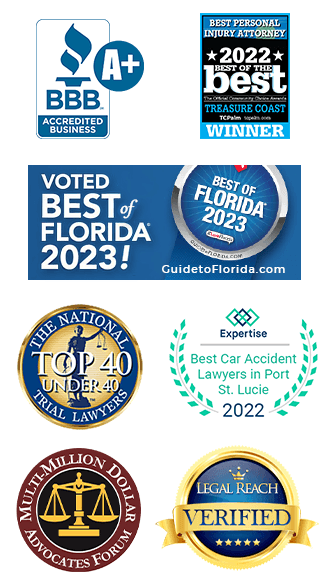Last month, a Sarasota motorcyclist swerved in an attempt to avoid crashing into a car that had stopped for another accident. Unfortunately, he ended up hitting that car and was critically injured. In another accident, a motorcyclist rear-ended another motorcycle when the lead cyclist apparently slowed and the second motorcyclist did not have time to react quickly enough. One of the men died and the other suffered serious injuries.
Our South Florida motorcycle accident attorneys have previously reported on the risks posed to motorcyclists on our highways. Due to the smaller size of motorcycles and a lack of protection around the vehicle, motorcycles are inherently more dangerous than cars or trucks. They are unsteady when braking and offer little protection to riders in a crash.
Now, the Insurance Institute for Highway Safety (IIHS) reports that riding a motorcycle is safer when the bike is equipped with anti-lock brakes. In fact, according to Institute President Adrian Lund, “Research shows that motorcycle anti-locks dramatically cut the risk of a deadly crash.”
An anti-lock system automatically reduces brake pressure when a lock-up is about to occur and increases it again after traction is restored. This prevents the motorcycle from skidding when brakes are applied suddenly, according to the IIHS. Further, ABS works by constantly measuring wheel speed, and it intervenes to adjust brake pressure only if it detects that a wheel is about to stop rotating.
In March 2011, the National Highway Traffic Safety Administration released results of a study designed to gain a better understanding of how non-expert motorcycle riders use conventional brake systems in emergency braking situations. The data showed that the combination of timing and magnitude of a rider’s brake inputs are important, and that how a rider brakes initially when an emergency situation is encountered is very important in determining whether the rider will crash. The report also showed that factors such as age, years of experience and recent riding experience did not affect the probability of collision in a sudden braking situation. NHTSA suggested a follow-up study for ABS brakes on motorcycles.
In 2010, there were 383 fatal motorcycle accidents in Florida. While the Florida Department of Highway Safety and Motor Vehicles has identified alcohol, speeding and lack of helmet use as factors in motorcycle fatalities, the use of ABS systems on motorcycles adds a safety feature that could prevent accidents.
Use of a safety helmet can also improve the odds for a motorcyclist surviving an accident. Florida law does not require motorcycle riders over the age of 21 to wear a helmet. The NHTSA estimates that helmet usage is 37% effective in preventing fatal injuries to motorcyclists and 41% for the passengers.
Our Treasure Coast accident attorneys encourage motorcyclists to wear a helmet, regardless of the law, and to follow the rules of the road. We also encourage you to read the IIHS pamphlet regarding anti-lock brakes and weigh the benefits before purchasing a motorcycle.
Injured in a Florida Motorcycle Accident?
A Florida motorcycle accident caused by another driver can leave you with serious, life-altering injuries. You need a motorcycle accident lawyer to stand up for your legal rights. It’s reassuring to know you can trust the law firm of Philip DeBerard, Injury Attorney. Our Florida motorcycle wreck lawyers have more than three decades of experience with vehicle accident claims, including those involving motorcycles.
If you’ve had a serious motorcycle accident and you need help, turn to the law firm of Philip DeBerard, Injury Attorney. Call 888-733-5675 now to speak with a compassionate motorcycle accident attorney or fill out our online contact form.
We serve victims of motorcycle crashes in South Florida and the Treasure Coast, including in Stuart, Port St. Lucie, Fort Pierce, Jupiter, Okeechobee, Palm Beach and Vero Beach.




